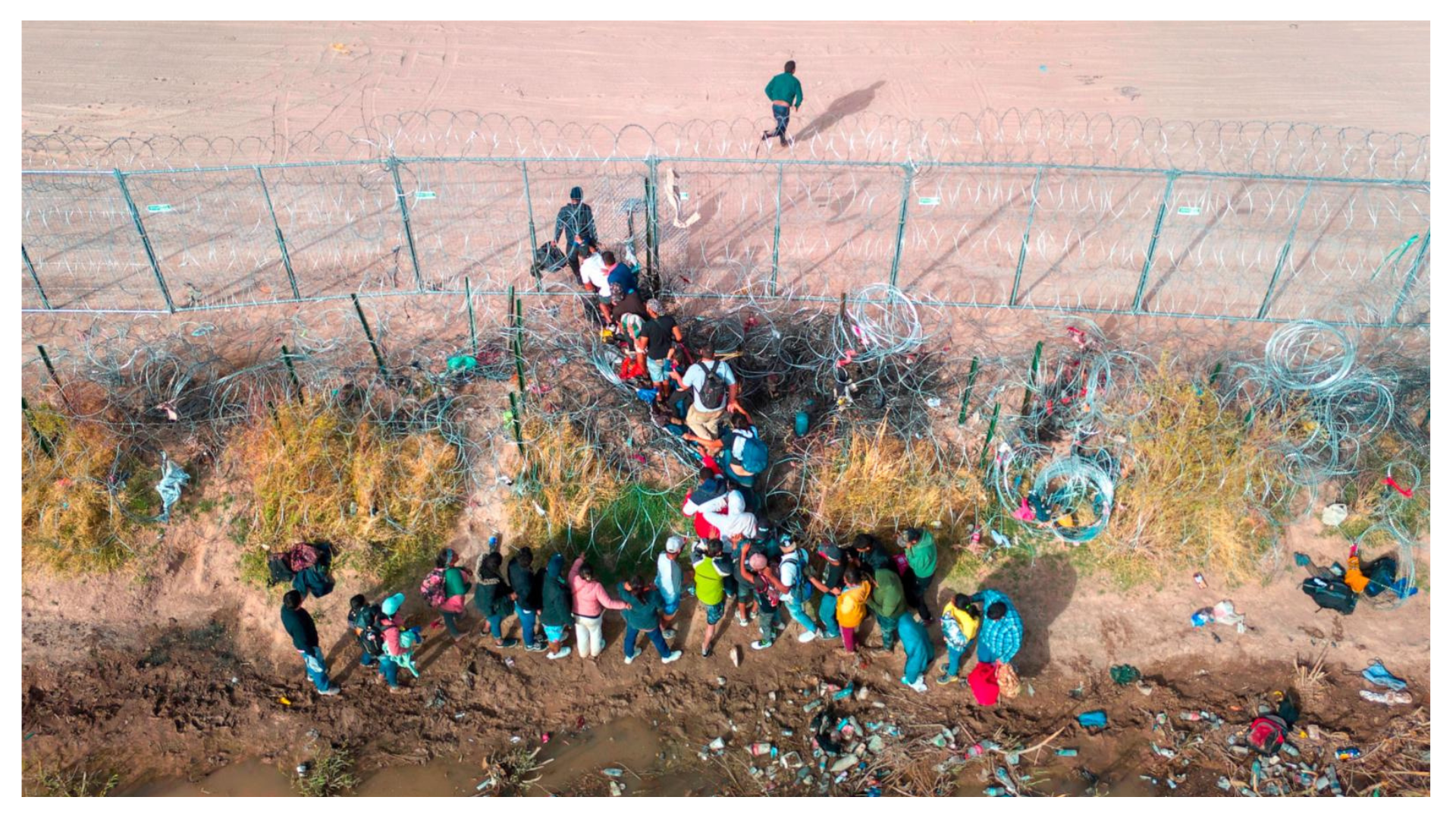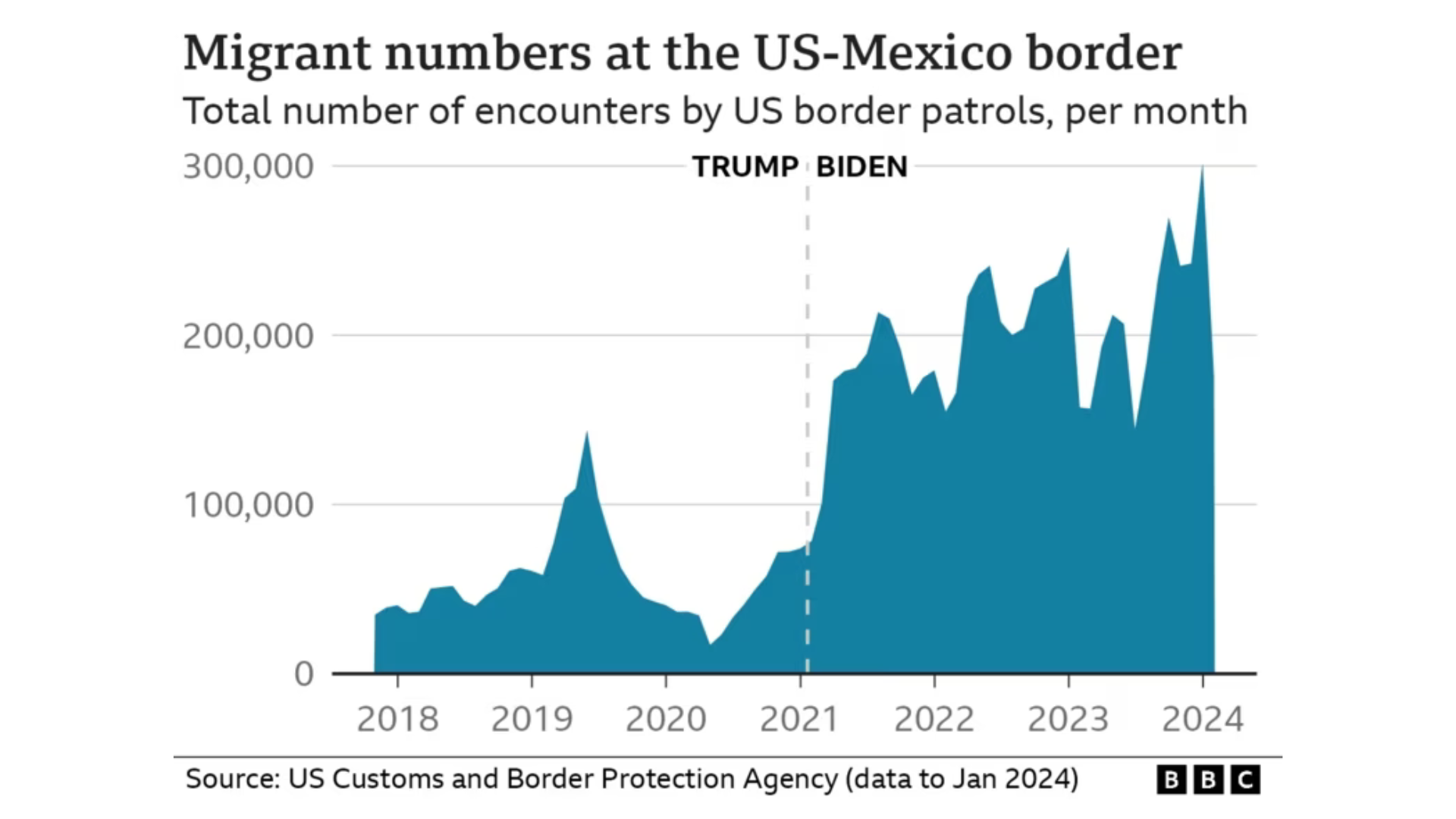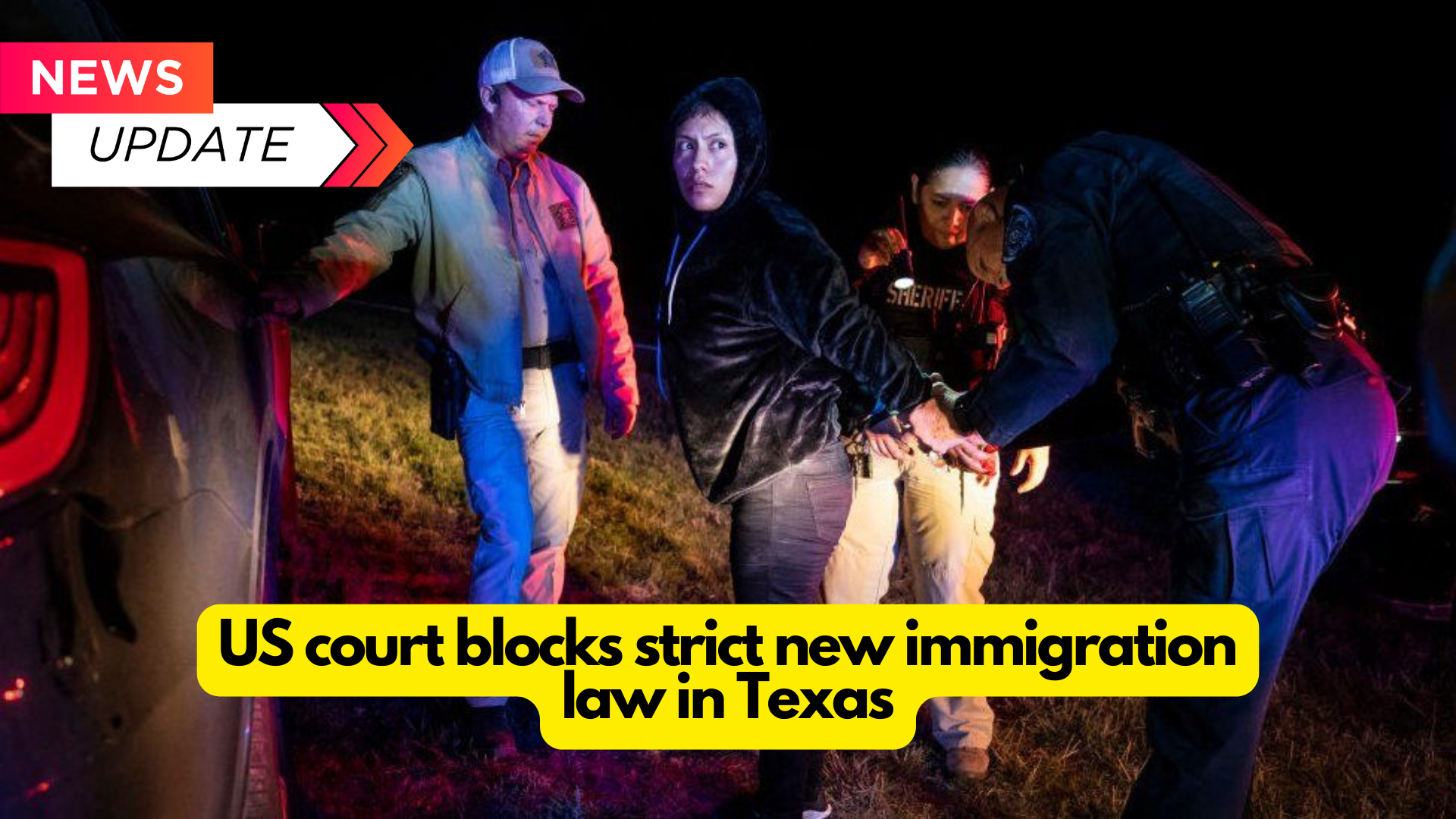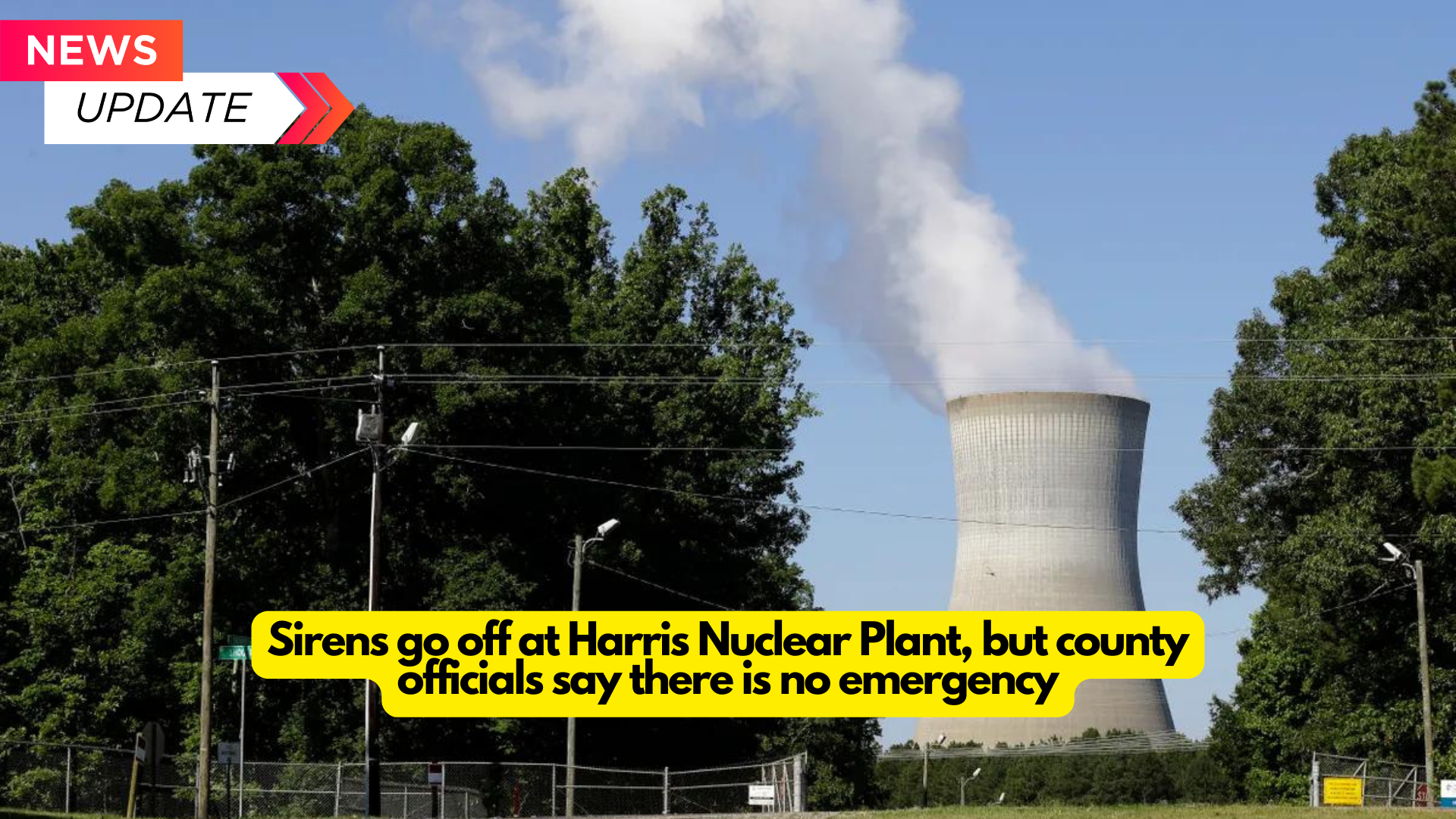Texas’s new, stringent immigration legislation is blocked by a US court.
In a case that is being closely followed across the United States, a judge has halted Texas’ contentious immigration legislation, which is one of the most stringent.
The bill would authorize Texas officials to hold and punish anybody they believe has entered the country illegally, surpassing federal authority.
The rule went into effect for a few hours on Tuesday following a legal dispute between judges.
On Wednesday, the case will be heard by a US appeals court.

The SB4 law in Texas was set to go into force on March 5, but President Joe Biden’s administration contested it, arguing that immigration detention should stay in their hands.
Migrant arrivals at the southern US border have reached all-time highs under his administration, making it a key worry for US voters ahead of the presidential election in November.
That has prompted Texas to take harsher measures along its border with Mexico, and if the courts uphold its new law, other US states may follow.
Mexico has criticized the new law as anti-immigrant, stating that it will refuse to receive any migrants deported by Texas police.
The decision to freeze the law is the latest in a series of legal decisions determining its fate.
If it were to be reinstated, it would represent a significant shift in how immigration enforcement is conducted, since courts have previously decided that only the federal government, not individual US states, may police the country’s immigration laws.
Crossing the US border illegally is already a federal felony, but offenses are often handled as civil matters by the immigration courts.

Under SB4, the penalty for unlawful entrance or re-entry into Texas is up to 20 years in jail.
It is unclear whether any migrants were imprisoned during the short hours that the legislation was temporarily in place.
The verdict is the latest in a series of judicial rulings concerning whether SB4 may go ahead.
In January, the Biden administration sued the state of Texas, and the following month, a district judge found that SB4 was unlawful.
It prevented its implementation due to worries that it would result in each US state having its own immigration rules.
Soon after, the New Orleans-based US Court of Appeals for the Fifth Circuit, the federal appeals court responsible for the area, stated the legislation may take effect as it evaluates the challenge, unless the Supreme Court intervenes.
The Biden administration subsequently filed an emergency motion with the Supreme Court to sustain the lower court’s freeze while the dispute was ongoing.
Meanwhile, Supreme Court Justice Samuel Alito placed the statute on hold to allow the courts to determine how to continue.
Earlier on Tuesday, the Supreme Court permitted the legislation to go into force while a lower federal appeals court reviewed its validity.
Then, late Tuesday night, a three-judge panel of the Fifth Circuit opted to stay the verdict until it heard the appeal.
A court hearing has been planned for Wednesday.

Historically, the federal government has developed immigration rules and regulations, despite the fact that the US Constitution does not specifically allow them such authority.
The federal government is also in charge of negotiating treaties and international accords.
Republicans frequently criticize Democratic President Biden’s handling of the US-Mexico border, which opinion surveys indicate is a top worry for Americans ahead of the November presidential election.



